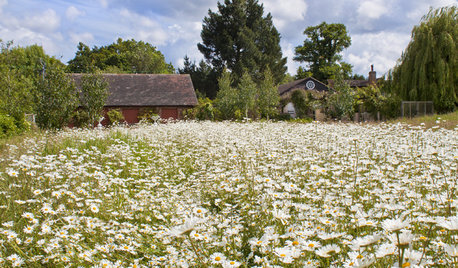variegated hydrangea lacecap has virus?
Laurel Zito
13 years ago
Related Stories

GARDENING GUIDESHouzz Call: What’s Your Favorite Backyard Beauty?
The simple, honest daisy is this writer’s go-to garden flower. We want to hear which plant, flowering or otherwise, gives you special joy
Full Story







gardengal48 (PNW Z8/9)
Laurel ZitoOriginal Author
Related Professionals
Baltimore Landscape Architects & Landscape Designers · Wheeling Landscape Architects & Landscape Designers · Newcastle Landscape Architects & Landscape Designers · Wilmington Landscape Contractors · Bridgeview Landscape Contractors · Brockton Landscape Contractors · Dickinson Landscape Contractors · Monterey Landscape Contractors · San Bruno Landscape Contractors · Welby Landscape Contractors · Winter Gardens Landscape Contractors · Columbus Siding & Exteriors · Mitchellville Siding & Exteriors · Iowa City Siding & Exteriors · North Adams Siding & ExteriorsLaurel ZitoOriginal Author
luis_pr
Laurel ZitoOriginal Author
gardengal48 (PNW Z8/9)
Laurel ZitoOriginal Author
Laurel ZitoOriginal Author